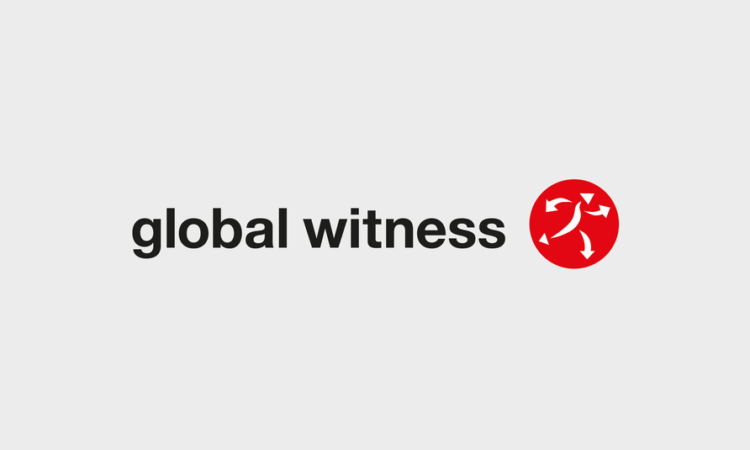European banks and investors, including Allianz, Deutsche Bank, and Intesa Sanpaolo, investing over €700m in companies tied to brutal violence against civilians in South Sudan

- European banks and
investors have invested €700m and provided over €4 billion worth of loans to two oil companies operating in South
Sudan linked to military aggression against civilians - The oil companies’ joint
ventures are the main source of revenue for the South Sudanese military, which
has a well-documented track record of targeting civilians and sexual violence since
conflict broke out in the country in 2013 - Control of the oil areas where
the firms operate has been a major driver of violence, and local populations
have been forcibly displaced by the military. Over the last decade of conflict,
the companies’ links to violence against civilians have been flagged by the US
Department of Commerce, the UN, and the Norwegian pension fund’s Council of Ethics - European banks and
investors continue to knowingly finance both companies, highlighting the need
for a new EU law to prevent banks from financing human rights and environmental
abuses
Brussels, November 14 –
60 major European banks and investors – including Allianz, Deutsche Bank, and
Intesa Sanpaolo – hold over €700 million in shares and bonds in two companies fuelling
violence in South Sudan, which the UN says could amount to complicity in atrocities
and war crimes, according to a new Global Witness investigation. European creditors have also provided over €4
billion worth of loans and underwriting services to the two companies in under seven
years.
The investigation reveals how,
despite widespread warnings against such investments, the European financial
sector has bankrolled two fossil fuel companies with the biggest shares in
South Sudan’s oil sector: Malaysia’s Petronas, and The China National Petroleum
Corporation (CNPC). Both operate joint ventures with Nilepet, the state-owned
oil company.
These companies generate revenue
that government forces have used to finance violence against civilians. The UN states
that ongoing violence towards civilians in the country is driven by the state’s
need to control the oil-producing areas where Petronas’ and CNPC’s joint
ventures are located.
The oil companies operate in
areas where local populations have been “either pacified or [removed]… using
extremely violent methods” according to a UN report. Petronas and CNPC even
hire the National Security Services – a force accused of abuses that include
torture and unlawful killings – and affiliated security companies to secure
their projects.
Civilians have been targeted by
the military for years, with the UN documenting their systematic use of sexual
violence against women and girls, deadly attacks on unarmed civilians, and mass
displacement of communities.
The oil companies have long been known to fuel
violence against civilians. The US Department of Commerce
concluded that the two companies’ profits are “used to fund the purchase of
weapons and other material that undermine the peace, security and stability of
[the country]”, while the UN noted that they “have caused or contributed to the
ongoing armed conflict and the violations against civilians in their
areas of operation.”
Meanwhile, the Norwegian pension
fund divested from a smaller joint venture partner, the Oil and Natural Gas
Corporation (ONGC) in 2021, after a report from its Council of Ethics suggested
that the company risked contributing to atrocities that could amount to war
crimes and crimes against humanity.
Despite this, the investigation
reveals for the first time that major European banks and investors have held
huge investments in Petronas and CNPC, two of the largest players in South
Sudan’s oil industry, since the conflict began in December 2013. Germany’s
Allianz and Deutsche Bank and Italy’s Intesa Sanpaolo all hold over €100m each
in shares and bonds in both companies.
These investments fly directly in
the face of human rights pledges made by the banks, highlighting the limits of
voluntary promises, and demonstrating the urgent need for a new law to prevent
banks from financing human rights and environmental abuses.
Deutsche Bank’s statement
on human rights commits them to “preventing or mitigating adverse human
rights impacts that are directly linked to their operations, products, or
services.” Allianz meanwhile maintains
“a watch list for sensitive countries where systematic human rights violations
may occur’’, saying it applies a “general human rights guideline for all
business in those countries.” These voluntary commitments failed to prevent
them from investing in Petronas and CNPC.
Aurelie Skrobik, corporate
accountability campaigner at Global Witness said:
‘’Deutsche Bank, Allianz,
Intesa Sanpaolo and the rest have been funding companies linked to unspeakable
aggression against civilians in South Sudan for years, yet they’ve done nothing
but sit back and watch money roll in. We urgently need European governments to
support a new law that could prevent banks and investors from financing
companies linked to human rights and environmental abuses.”
The European Union is in the
final stages of negotiating a sweeping new law – the Corporate Sustainability
Due Diligence Directive – to prevent companies from profiting from human rights
abuses and environmental damage. However, it could let the financial sector off
the hook, after EU member states failed to support their inclusion in the new
law in their
position agreed last year, caving to pressure from
finance lobbyists.
Deutsche Bank stated that they do not comment on information relating to clients or specific transactions, and claim to have adequate social, environmental and climate change risk and international sanction management policies in place. Deutsche Bank further emphasised its commitment to net-zero and asked to be distinguished from its asset management subsidiary, DWS. DWS stated it takes its responsibility regarding respect for human rights very seriously and emphasised its sustainability policies.
Allianz and Intesa Sanpaolo did not respond to Global Witness’ opportunity to comment on these findings.
ENDS





